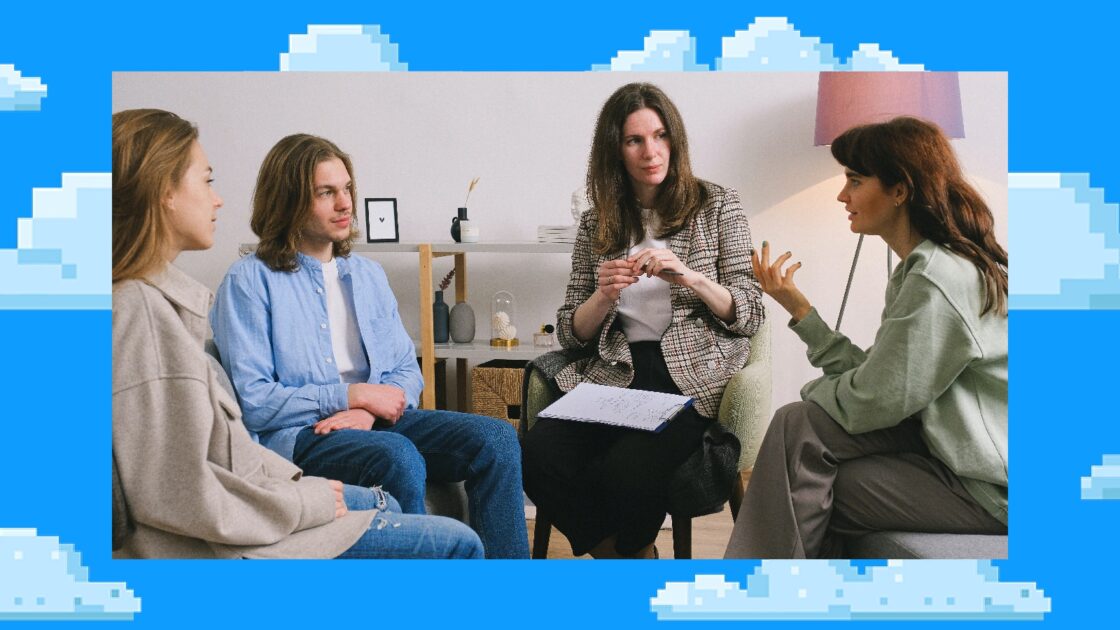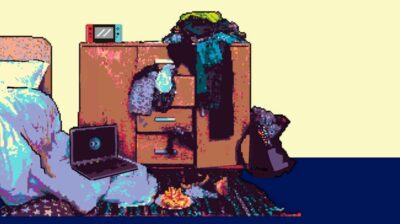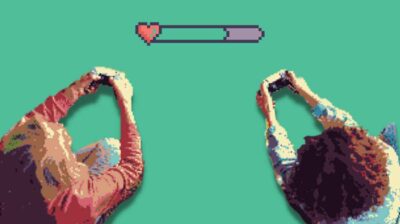What people get wrong about inpatient mental health recovery
Rebecca explains how mental health recovery in a hospital setting may look confusing at first.

Mental health recovery is just as important as any other type of recovery, it just looks different and that’s something that might confuse someone who hasn’t experienced it. When I left work on sick leave because I was going to hospital, of course, they had an idea in their head of what that meant. But that idea was most likely wrong unless they really knew me.
Prior to my first hospital admission, I had no idea what to expect. I was 18 and had only ever stayed overnight in a hospital for a kidney infection. I had seen movies like ‘Girl Interrupted’ and ‘It’s Kind of a Funny Story,’ both set in psychiatric hospitals and that’s all I really had to go on.
On the day I was admitted, I unpacked my bag, stayed for dinner, then packed my bag again and went home. I remember it was spaghetti bolognese and the food was of a much higher standard than a general hospital so that was a plus. However, I looked around and noticed that everyone else was significantly older than me and that scared me away, no matter how kind and welcoming they were.
So I went home, and I thought about it, and I prepared myself to go back in. I’m the type of person who doesn’t like change and new environments overwhelm me. I think I needed to go home at that time to adjust to what I was getting myself into because now I knew what to expect. Well, to some degree.
My mental health recovery in hospital
So here’s how it worked: I went into the hospital, after being admitted, a nurse showed me to my room and then I waited to see the team, which included my psychiatrist, a psychologist, and other members like an occupational therapist and a social worker. I met my roommate who couldn’t have been nicer so that was a sigh of relief.
I was shown around the ward where there was a lounge area and another room with books and board games and DVDs. There was also a little kitchen to make tea and coffee. On my first night I hid in my room until the loveliest lady invited me to watch a movie. This was when I realised that this wasn’t so scary and that there was some sense of community.
The day starts at 8 am with breakfast and then we get our blood pressure checked and we take our medication. After that, the course of the day depends on each individual and the purpose of their admission. For me, that generally involved DBT (Dialectical Behavioural Therapy), a group therapy that teaches skills to manage emotions. I also attended individual sessions and regular check-ins with my psychiatrist and the team.
During our free time, there is a timetable of activities like table quizzes, art therapy, mindfulness, cooking and so much more which we could do throughout the day if we liked. To my surprise, visiting hours were nothing like a general hospital, and as long as you went to your sessions, dinner, and tea, friends and family could visit up until 8 pm.
The first weekend I had to stay in, but after that on most weekends I got to go home. This is where people get confused, and understandably so. You don’t see people with kidney infections go home on the weekends when they’re not better but it’s actually very common during an admission at a psychiatric hospital. In fact, time spent outside of the hospital is vital to recovery.
Here’s why: The support we get and the work that we put in while at hospital is all to prepare us for how to manage life in the real world. DBT involves homework, ‘home’ being the key word. Part of DBT is learning how to describe our emotions and exercises for this usually targets the challenges we face day to day. For example, running late for a meeting, fighting with a partner etc. These are situations that we generally won’t encounter while at hospital.
Mental health recovery can look confusing to people
During the week, I could sign out for a few hours as long as the nurses knew where I was. Again, if I’m shopping for clothes, then I obviously must be out of the hospital. The fact that people might not understand this was extremely anxiety provoking. I remember getting off the bus and seeing a girl from work. She said something along the lines of ‘you look so well,’ and I said, ‘I’m on hours out.’ This probably meant nothing to her because without context it makes no sense.
Another time, when I was home for the weekend, I ran into someone else from work while I was having dinner in the pub. The pub of all places! Clearly, I’m completely fine if I’m able to be in the pub on a Friday night. I tried to over-explain, desperate not to be judged. I was so afraid that they would go back to work and tell everybody that I’m lying and that I’m not actually in the hospital.
Every time I was in the hospital, I was worried that I didn’t deserve to be there, that I wasn’t sick enough. I felt like a fraud taking a bed away from someone who was actually sick. On top of this, I was worried about how it might look to people on the outside. Hours out and weekends home should be a time to enjoy but I couldn’t help but feel guilty every time someone saw me doing something that a ‘sick person’ shouldn’t be able to do.
What a psychiatric ward is actually like
I was afraid to smile because I felt like I wasn’t supposed to be happy if I’m in the hospital for my mental health. The reality is though, that if you walk into a psychiatric ward, you’ll often find it’s full of laughter.
It is also important to know that mental health recovery is not as straightforward as recovering from a physical illness. It’s almost as though when I come out of the hospital people assume that I’m ‘better now.’ Unfortunately, it doesn’t work that way, in my case anyway. I don’t go in sick and come out cured.
Similar to needing physio after a broken leg, mental health recovery continues after the hospital. The difference is that people can see a broken leg so it’s easier to make sense of. What people need to understand about mental health recovery is that you should never make assumptions about someone’s progress based on what you see.
Somebody might be in the hospital for a serious mental health condition but that doesn’t necessarily mean that they can’t live their lives. On some occasions I have seen people continue to go to work or college towards the end of their admission.
The reality of mental health recovery
It’s been several years since my first hospital admission; since the morning I got up at 7:45 am to have a shower and be dressed, only to find everyone sitting at breakfast in their pyjamas. You’d now find me at dinner in my slippers if I were in the hospital.
I’d love to say I’ll never be in the hospital again and maybe I won’t be, but the reality is that my mental health recovery is a journey that is often unpredictable. To many, it might sound strange, but I’m okay with the idea. I’m grateful that the option is there for me if I ever find myself a little bit stuck.
After multiple admissions, I’m no longer ashamed to say that I need help without seeking the validation of others. I know that not everyone will understand why I need help or how I receive it but that’s irrelevant to my recovery because it’s mine.
Feeling overwhelmed and want to talk to someone?
- Get anonymous support 24/7 with our text message support service
- Connect with a trained volunteer who will listen to you, and help you to move forward feeling better
- Whatsapp us now or free-text SPUNOUT to 50808 to begin.
- Find out more about our text message support service
If you are a customer of the 48 or An Post network or cannot get through using the ‘50808’ short code please text HELLO to 086 1800 280 (standard message rates may apply). Some smaller networks do not support short codes like ‘50808’.






